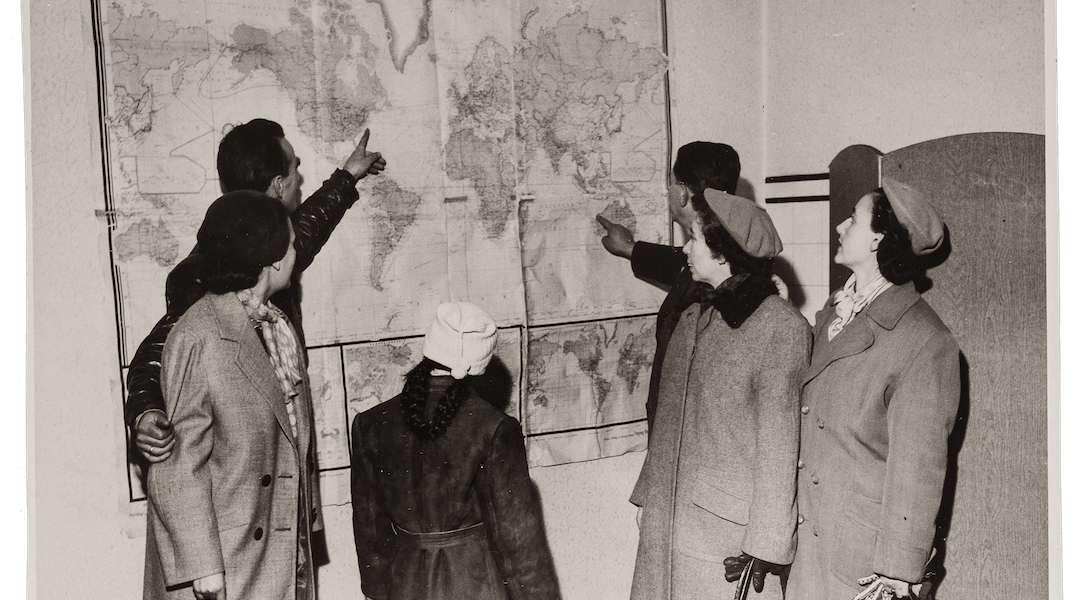Israel takes ‘huge step’ towards entry into visa waiver program, U.S. ambassador says
While Israel has met one of the main conditions to enter the visa waiver program, ambassador Nides notes that Israel would have to offer reciprocity by allowing Palestinians with American citizenship free passage from the West Bank to Israel

Tom Nides, the U.S. ambassador to Israel, speaks to the Foreign Press Association at the King David Hotel in Jerusalem, Sept. 7, 2022. (Ronaldo Schemidt/AFP via Getty Images)
This article originally appeared on Haaretz, and was reprinted here with permission. Sign up here to get Haaretz’s free Daily Brief newsletter delivered to your inbox.
U.S. ambassador to Israel Tom Nides announced Monday that Israel was able to meet the main condition needed to be admitted to the visa waiver program.
Nides said that the refusal rate for tourist visa applications for Israelis in the past year fell to below 3 percent, standing at 2.27 percent – the first step in joining the program – but that there are other conditions that Israel will have to meet in order for its citizens to be able to fly to the U.S. without a visa.
Important progress on the visa waiver program - watch this video for more information. For U.S. passports, “Blue is blue.” pic.twitter.com/1FqaJu5b7D
— Ambassador Tom Nides (@USAmbIsrael) January 30, 2023
Haaretz has learned that Israel’s National Security Council has assigned a special team, including representatives of the various government ministries, to conduct weekly monitoring of the progress of the legislation on the subject.
“Israel has taken one huge step towards the visa waiver program,” Nides said today in a video statement. “The Knesset needs to act. There are laws that need to pass to get Israel eligible. The whole Israeli government will have to move quickly on many technical requirements.”
According to Nides, the window to join will only be open until September of this year, after which it will close if Israel fails to complete all the requirements. If the conditions are not fulfilled, Israel will have to wait for next year when the refusal-rate is recalculated.
The most important requirement, Nides noted, “is reciprocity. Freedom of travel is the fundamental basis of the Visa Waiver Program.” This means that in order to join the program, Israel will need to allow Palestinians with American citizenship free passage from the West Bank to Israel and back, instead of using the Allenby Bridge today, as well as to approve the sharing of passenger information with the Americans.
A political source told Haaretz that “Israel is ready to comply with all the American requirements that would allow for visa exemption, and is working to complete the legislation on the subject within a few months.”
Despite the steps that have not yet been completed, Foreign Minister Eli Cohen announced that “the visa to the United States is set to be canceled in a matter of months.”
According to experts, the rate of entry-refusal for Israelis last year was as high as 6.7 percent, but both Israel and the U.S. took advantage of the small number of requests due to the COVID-19 crisis while also discounting requests that were rejected on technical grounds, to allow Israel to enter the program.
In addition, Israel sought to reduce the level of suspicion exhibited by the Americans towards applications submitted by IDF veterans who go on a trip after their military service, and do not seek to go to the US to settle unlike other young people of their age from around the world.
In March of last year, former Israeli Internal Security Minister Omer Bar-Lev signed an agreement with the U.S. to share Israelis’ criminal records. The agreement, signed in the presence of Under Secretary of Homeland Security Robert Silvers, allows each of the parties to submit a thousand queries a year about visa applicants to find out if they have been convicted of serious crimes.















